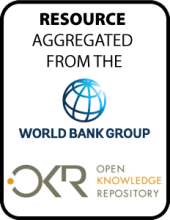Land Library
Welcome to the Land Portal Library. Explore our vast collection of open-access resources (over 74,000) including reports, journal articles, research papers, peer-reviewed publications, legal documents, videos and much more.
/ library resources
Showing items 46 through 54 of 178.Market-based reforms and the opening up
of trade and investment initiated over the past four years
have had a positive impact on growth in Myanmar. These have
enhanced private sector participation and increased the role
Policies that enable rural communities
to participate in expanding economic opportunities can be
central to inclusive growth in Myanmar. Rural communities
are home to the majority of Myanmar’s population, the
With 2015 marking the transition from
the Millennium to the Sustainable Development Goals, the
international community can celebrate many development
successes since 2000. Three key challenges stand out: the
The international development community
is increasingly demanding better evidence on the
effectiveness of policies and programs across different
sectors. The forest sector is no exception. Governments and
In sub-Saharan Africa women comprise a large proportion of the agricultural labor force, yet they are consistently found to be less productive than male farmers.
This note is a summary of a report that
considers urban areas as the complement to rural areas that
will allow the Plurinational State of Bolivia to achieve the
goals set forth in its Patriotic Agenda for the Bicentennial
Renato and Hecinta are raising six young
children in a rural area of Mozambique’s northern Nampula
Province. On just half a hectare, they grow rice, maize,
beans, cashew, peanuts, cabbage, and tomatoes, selling what
Policy makers in developing countries,
including India, are increasingly sensitive to the links
between spatial transformation and economic development.
However, the empirical knowledge available on those links is
People living in poverty are
particularly vulnerable to shocks, including those caused by
natural disasters such as floods and droughts. Previous
studies in local contexts have shown that poor people are


